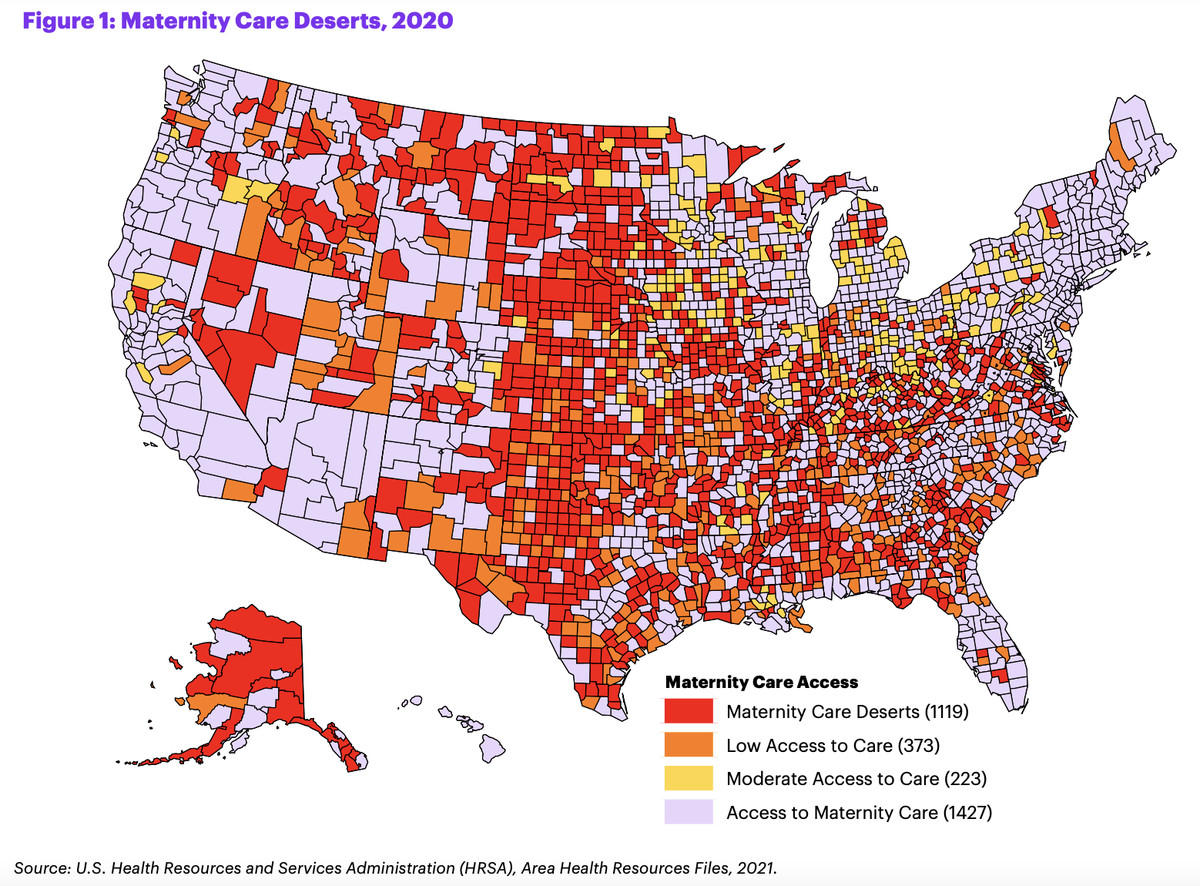Across the nation, especially in the South and Midwest, states are experiencing a significant lack of access to obstetric, prenatal, and postpartum treatment. Counties devoid of maternity care, or “maternity care deserts,” are areas in which maternal health centers do not exist, or are unable to match the demand required of them. Alarmingly, 36% of counties in the United States qualify as such, affecting nearly seven million women nationwide. So, why is this occurring, and more importantly, why is it such an immense issue that not many are aware of?
Only about 21,450 obstetricians and gynecologists are currently practicing in the United States. While this number is not too much smaller than it has been in previous years, more and more OB-GYNs are choosing to practice in urban areas, leaving those in the rural countryside to find alternative means of prenatal care and other necessary pregnancy-related treatments. There are a few reasons for why this is happening: first, doctors want to go where there is an economic future for both them and their families, and second, the overturning of Roe v. Wade has made plenty of healthcare providers cautious about staying where severe limits on reproductive services exist. Agricultural states are being hit the hardest with nearly half of Arkansas’ counties being labeled as maternity care deserts, followed closely by Texas.
Typically, the more maternity deserts a state has, the greater its maternal and infant mortality rate is. For instance, in Louisiana where 31.3% of counties are without maternity healthcare, its maternal mortality rate is 51.8 deaths per 100,000 births, the highest of any state in the country. However, it is essential to note that some expectant mothers are more impacted by this than others. A clear racial disparity exists in how some women obtain treatment throughout their pregnancies, evidenced by the fact that an estimated 59% of black maternal deaths in Louisiana are preventable. This is due not only to Southern institutional racism, but the unfathomable expenses associated with accessing proper obstetric, prenatal, and postpartum care. If one has to travel numerous miles to a maternal health center/hospital, add on an average price of $16,272 to give birth in Louisiana and the fact that it ranks as one of the most costly for health insurance and it’s easy to understand why so many Americans are struggling. This affects minority women the most, particularly black women who are more likely to face obstacles in acquiring affordable healthcare and paying off medical debt.
At a time when reproductive freedom seems to be an issue making headlines every other week, it is imperative that we recognize not only the difficulties expectant mothers are encountering while seeking maternal care, but the impact it is having on the quality of life of women across the nation. If we are to protect the health of pregnant women in the United States, we must first be able to ensure that they can receive the care and treatment they need to give birth in both an obtainable and safe manner, along with assuring them an accessibility to any other services they may require along the way (or even afterwards). All things considered, working towards a solution to the maternal health care crisis is not only how we will safeguard the well being of women everywhere, it is how the lives of a large portion of an entire generation will be secured.
(Photo from VOX)






